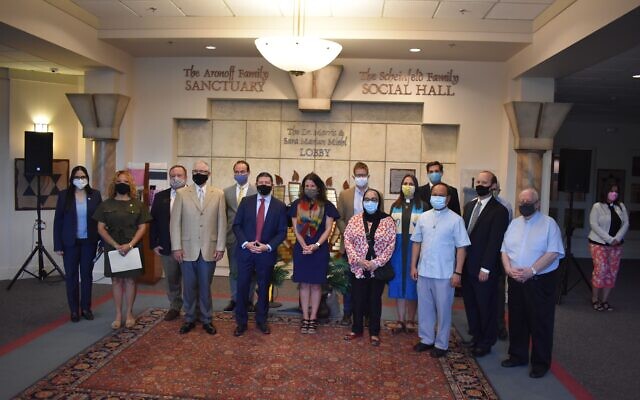![]()
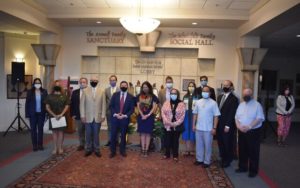
Photo Credits to Atlanta Jewish Times
By Dov Wilker, Regional Director, American Jewish Committee,
Rabbi Larry Sernovitz, and Rabbi Dan Dorsch
In the days between Rosh Hashana and Yom Kippur, there were a number of antisemitic incidents at Cobb County schools. The response from the Jewish community, seeking accountability at the schools, as well as by the school board itself, continues to be overwhelming. In fact, more than 4,000 people signed a petition organized by AIAAS (Atlanta Initiative Against Antisemitism).
Although Cobb County schools have had a history of antisemitic incidents, it appears that the school district is hoping to make meaningful changes to support its Jewish students. Both the Chair of the school board and the Superintendent of schools of Cobb County have spoken about the importance of addressing these issues and working to prevent them from taking place in the future.
At school board meetings last week, Rabbi Larry Sernovitz (Temple Kol Emeth) and Rabbi Dan Dorsch (Congregation Etz Chaim), spoke on behalf of the Jewish community in Cobb, with impassioned statements, which we are sharing with FederationFive readers.
On behalf of five synagogues representing two-thousand Jewish families, Temple Beth Tikvah, Temple Kol Emeth, Temple Kehillat Chaim, Chabad of Cobb, and Congregation Etz Chaim, of the East Cobb and Roswell Jewish communities, we are here today to express our collective outrage and disappointment at the way that recent events unfolded following an antisemitic incident at Pope High School.
On Thursday, September 9, swastikas, a symbol of the German Nazi Party that was responsible for the eradication of 6 million Jews and countless minorities during the Holocaust, appeared in the boys’ bathroom at Pope High School, along with its accompanying words: “Hail Hitler” [sic]. This act has left the families we represent and countless others feeling unsafe. Our communities were initially encouraged by assurances that there would be a strong response from the school, as well as other correspondence threatening to suspend or expel the perpetrators of this crime. However, today, we as a community stand united in our disappointment that the school’s response specifically failed to address the hate by name: antisemitism, hatred against Jews — one of the oldest continual prejudices in the world. The failure by the administration to label it by name has left us feeling unheard and unseen.
Unfortunately, while we wish this was an isolated incident, we have spoken to our congregants, and we know that this is not the first, but one in a series of antisemitic incidents that have taken place not only at Pope but at other schools across Cobb County. Believe it or not, since the first event, there have been even more swastikas at Pope and elsewhere. When we asked our constituents for recent stories of their experiences with antisemitism in the district, a flood of emails came our way.
It is with this in mind that in partnership with non-partisan Jewish groups, such as the American Jewish Committee, the Atlanta Initiative Against Antisemitism, the Jewish Community Relations Council, and the Anti-Defamation League, as well as the bipartisan Georgia State Commission on the Holocaust, that we call for the creation at Pope High School, and in other schools across our county, a community of support for all vulnerable populations, for individuals and organizations to stand up and say that they will not tolerate antisemitism, racism, hate speech, and hatred in their community.
We in the Jewish community need committed allies who will speak out along with us: other students, faculty and administration, community groups, churches, synagogues, and mosques. We also need community leaders: student leaders, athletes, politicians, to speak out. As we view education as the key to creating respectful communities, we hope that this incident — one among many — will renew the school board’s interest in committing to teach kids allyship, celebrate difference, and teach understanding in our classrooms.
We also call on the school board to engage in further dialogue with our communities about how the district deals with Jewish holidays, as they impact students, teachers, and public meetings. The fact that it was only very recently that the school board discovered that the original date for this meeting was Yom Kippur, the holiest date on the Jewish calendar, underscores the magnitude of this disconnect and the need for us to work together after this meeting in the long-term to solve this crisis. Jewish students, nor faculty, should never be penalized for honoring their faith and heritage. We are grateful to the board for changing the date once this error was discovered and look forward to this being one of several constructive conversations about how this district can be more inclusive and supportive of its Jewish students and faculty, enabling us to both celebrate our holidays and be active members of our civil society.
Lastly, in the words of Sally Levine, Executive Director of Georgia’s State Commission on the Holocaust, we believe it is imperative that “the school administration at [Pope High School] call the event by its name: antisemitism. That is what it is, pure and simple. When we don’t call it out, we diminish the impact of the event. There are students at Pope High school who now feel vulnerable. They need to know that their classmates, their parents, teachers, and administrators have their backs. Silence is unacceptable. Not naming the crime is unacceptable.”
The time has come for our schools to do their part in helping to end antisemitism.
We thank you for your time and welcome the opportunity to continue this discussion with the distinguished members of our school board.
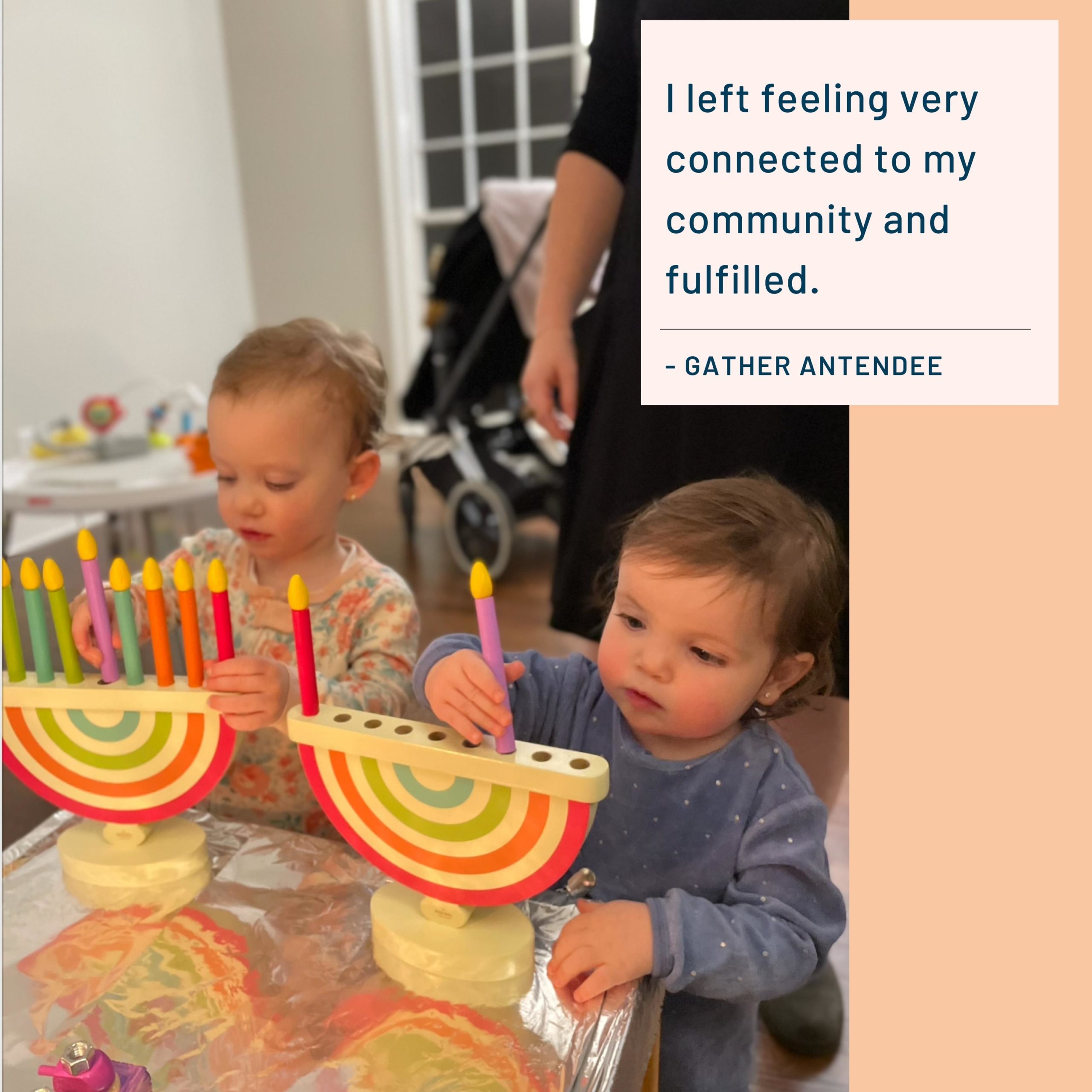
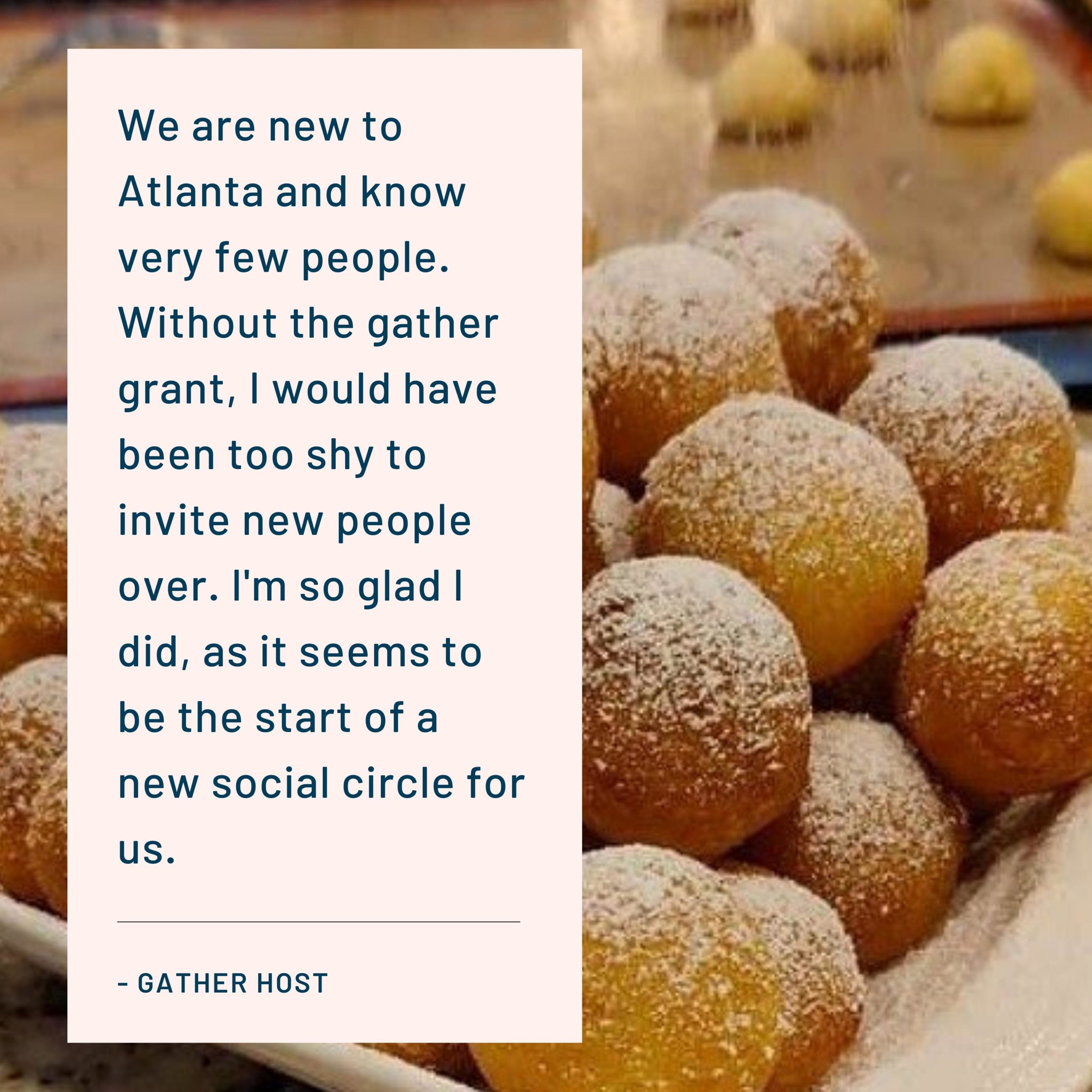
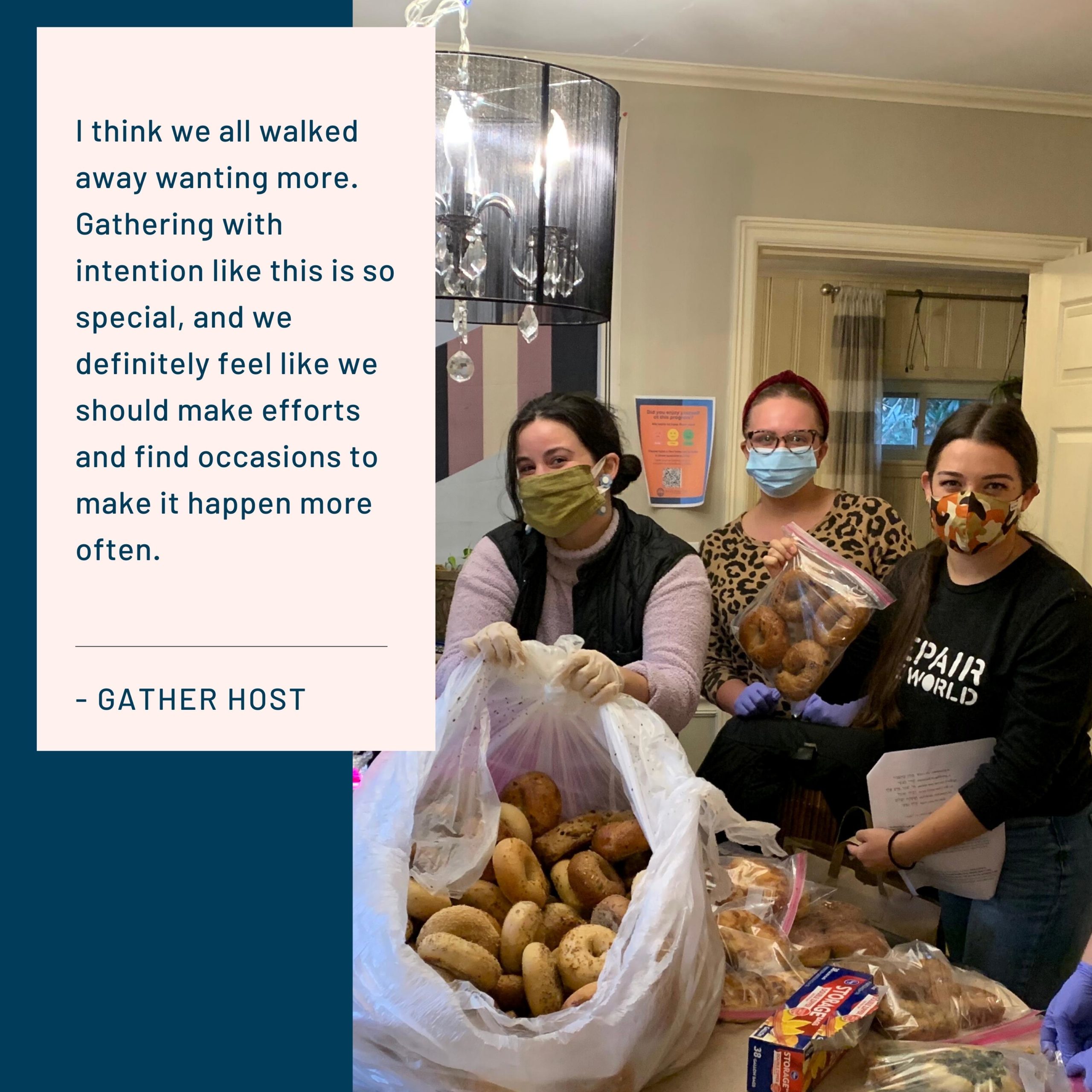
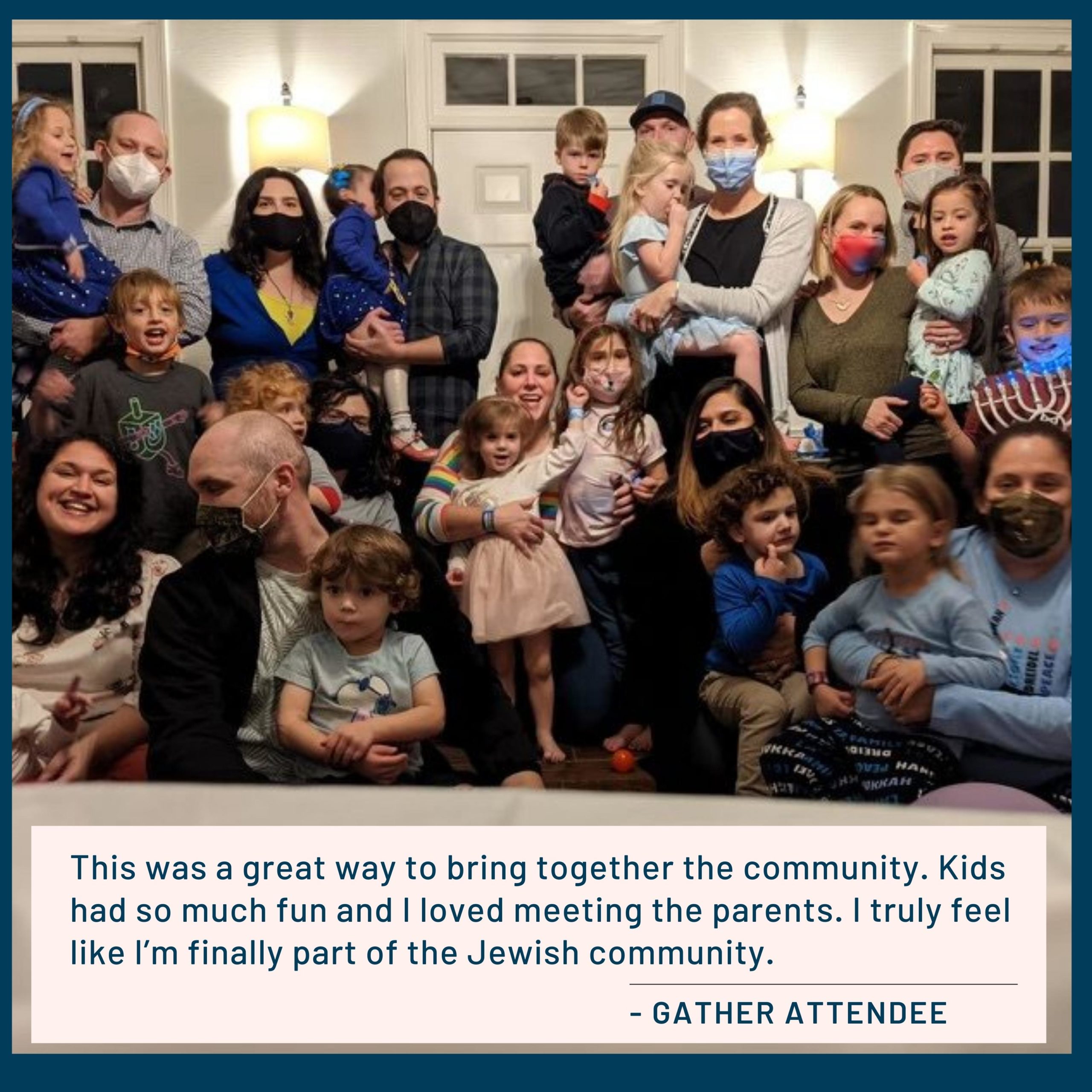
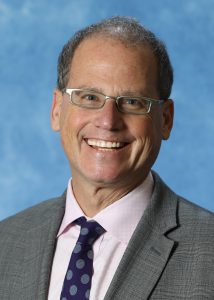

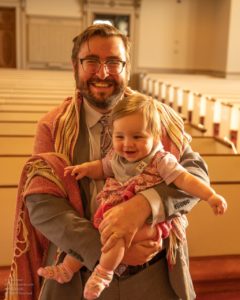 By Rabbi Sam Kaye, The Temple
By Rabbi Sam Kaye, The Temple 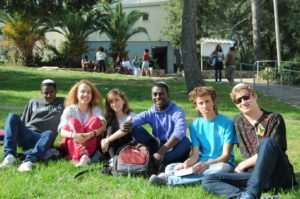 For 450 at-risk youth from around the world,
For 450 at-risk youth from around the world, 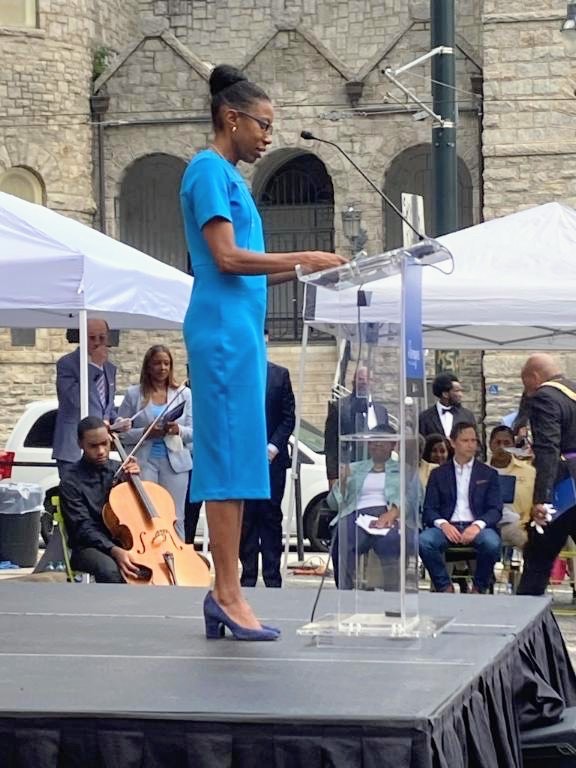
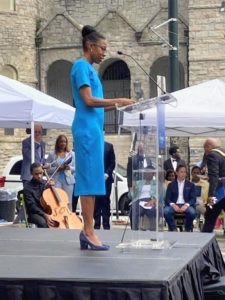 By Victoria Raggs
By Victoria Raggs 